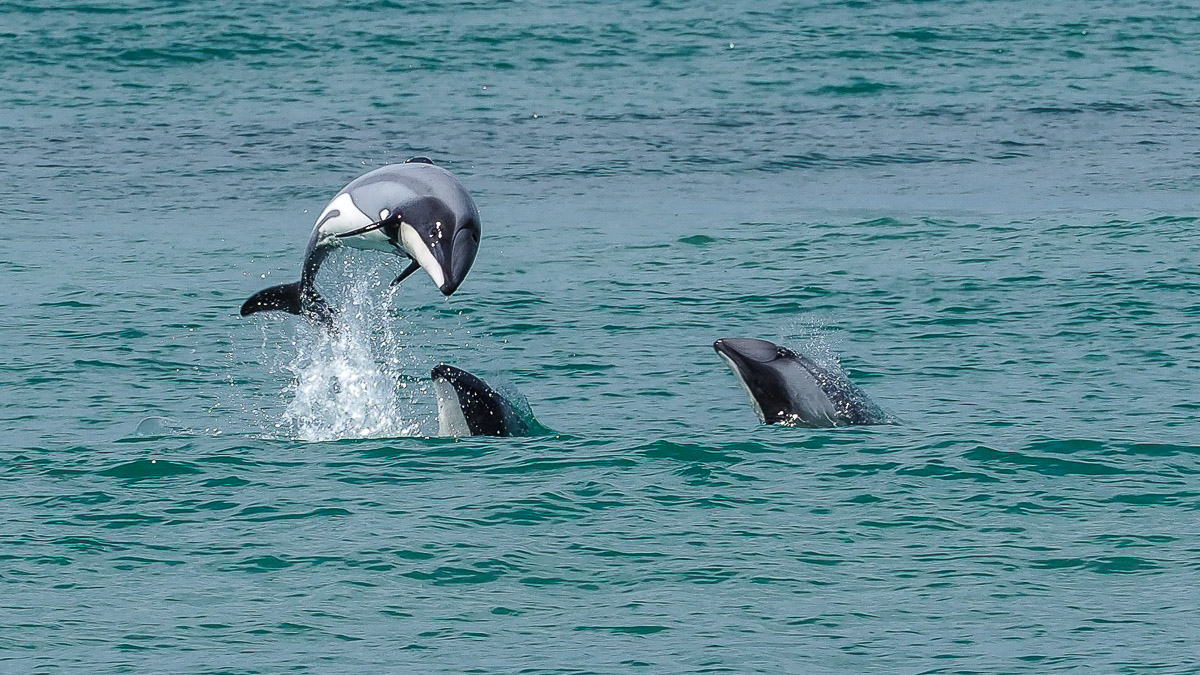Views expressed in opinion columns are the author’s own.
Here’s an understatement: Politics are weird right now. I don’t need to compile an exhaustive list to make that point; it’s self-evident. One striking example is that the sentiment trade wars are “good, and easy to win” is now officially mainstream. However, despite the surreal political climate, I’m still likely to be laughed out of any real political conversation for stating a scientific fact: Dolphins are of comparable intelligence to humans. The logical conclusion is that they deserve rights respecting their cognitive complexity.
As amusing as the mental image of dolphins working office jobs or voting alongside humans is, I’m serious. Scientific evidence demands that we seriously reconsider how we conceptualize animal intelligence. History generally does not look kindly upon those who dismiss a group’s intelligence out of hand.
Dolphins, as well as whales and porpoises, belong to the group of animals known as cetaceans. Cetaceans are well known for their intelligence, but the precise nature and uniqueness of that intelligence is a more slippery question. Cetaceans may be smart but not necessarily in the same way as humans. Or, equivalently, humans might not be smart in the same way cetaceans are.
Various studies have shown that cetaceans are capable of a range of complex behaviors often associated with intelligence. They are self-aware, socially conscious and can even recognize and signal their own uncertainty. Essentially, they can think about thinking. That intelligence has made a splash in scientific circles and pop culture, but the law still treats them simply as animals. They are still, for example, routinely held captive. This is, of course, against their will, as modern science cannot yet ask a dolphin, “Hey, would you like to live in a tank?”.
Perhaps the uncomfortable implications of granting cetaceans personhood is holding policy back. Measuring animal intelligence isn’t as simple as ranking IQ scores. Animals tend to have unexpected cognitive strengths and weaknesses. Different species are intelligent in different ways. Even pigeons can outperform monkeys in some tasks. Granting cetaceans some form of legal personhood would plunge us into a world-wide philosophical debate. If dolphins are worthy of “human” rights, then why not elephants, or apes or pigs? Extending rights to just cetaceans seems unscientific, at best.
As an avid meat eater, I must admit that sounds like an unpleasant debate. Traditional animal rights rhetoric has never really bothered me. I honestly don’t care if the cow I’m about to eat looked cute once. However, the prospect that there’s no clear delineation between “intelligent” life, such as dolphins, and food, such as pigs, is more troubling.
That discomfort should not prevent us from acting to secure rights for species that have clearly exceptional intelligence. While all animals certainly deserve some basic rights, our treatment of some, such as cetaceans, is clearly abominable given their ability to think, feel and perceive. Dismantling dolphin and whale exhibits and considering them as non-human persons seems radical, and it will force us to reconsider our attitude towards animal rights in general. It is a moral necessity regardless.
Nate Rogers is a rising sophomore physics major. He can be reached at nrogers2@terpmail.umd.edu.



